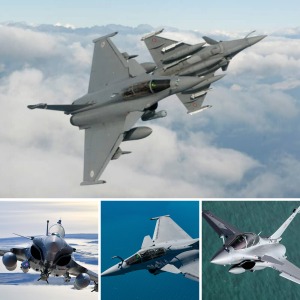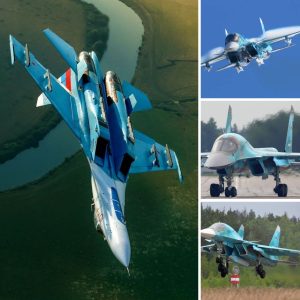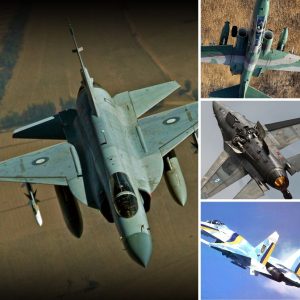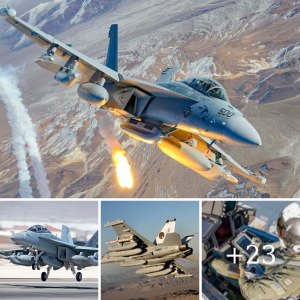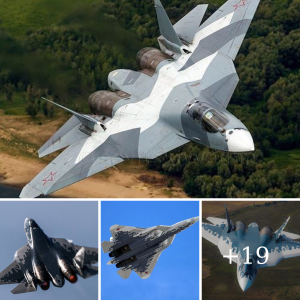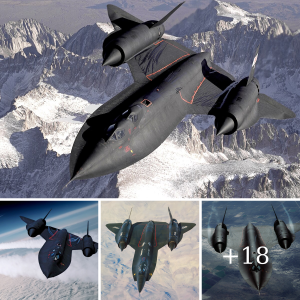The Fairchild Republic A-10 Thunderbolt II, affectionately known as the “Warthog,” is a renowned ground-attack aircraft designed for close air support (CAS) of ground forces. Since its introduction in the 1970s, the A-10 has earned a legendary reputation for its toughness, firepower, and ability to loiter over the battlefield, delivering precise and devastating support to troops in combat.

Development and Purpose
The A-10 was developed in response to a critical need for a dedicated CAS aircraft capable of countering armored threats and providing direct support to ground forces. The Vietnam War highlighted the vulnerabilities of jet aircraft in the CAS role, prompting the United States Air Force (USAF) to seek a solution. The result was the A-10, which first flew in 1972 and entered service in 1977.
Design and Features
The A-10’s design prioritizes survivability, firepower, and close support capabilities:
- Durability and Redundancy: The A-10 is built to withstand significant damage and continue flying. It features redundant control systems, a titanium “bathtub” armor that protects the pilot, and a robust airframe designed to absorb hits from ground fire.
- Straight Wing Design: The straight, low-aspect-ratio wings provide excellent maneuverability at low speeds and altitudes, crucial for the CAS role. They also enable short takeoff and landing distances.
- Large Payload Capacity: The A-10’s eleven hardpoints allow it to carry a wide array of ordnance, including bombs, rockets, and missiles, making it highly versatile in combat.
GAU-8/A Avenger Cannon
The A-10’s most distinctive and fearsome feature is its primary weapon, the GAU-8/A Avenger 30mm rotary cannon:
- Powerful Firepower: The GAU-8/A can fire up to 3,900 rounds per minute of high-explosive incendiary and armor-piercing ammunition. This cannon is devastating against tanks, armored vehicles, and other ground targets.
- Aircraft Integration: The cannon is integrated into the aircraft’s design, with the A-10 essentially built around this formidable weapon. Its recoil force is so strong that it slows the aircraft down when fired.
Avionics and Systems
The A-10 is equipped with advanced avionics and systems to enhance its effectiveness in the CAS role:
- Targeting Systems: The A-10 uses the Pave Penny laser receiver pod for laser-guided munitions and various targeting pods for precision engagement of ground targets.
- Night and All-Weather Capabilities: The aircraft’s avionics suite includes night vision goggles compatibility and systems that allow operations in various weather conditions, ensuring 24/7 support for ground troops.
- Survivability Features: The A-10’s survivability is enhanced by features such as self-sealing fuel tanks, foam-filled fuel cells, and redundant hydraulic systems that allow it to fly with one engine, one elevator, and half a tail.
Operational History
The A-10 has seen extensive service in numerous conflicts since its introduction:
- Gulf War: The A-10 played a crucial role in the 1991 Gulf War, destroying over 900 Iraqi tanks, 2,000 other military vehicles, and 1,200 artillery pieces. Its effectiveness in CAS and anti-armor roles was widely recognized.
- Operation Enduring Freedom and Operation Iraqi Freedom: The A-10 continued to prove its worth in Afghanistan and Iraq, providing essential support to ground troops, engaging insurgents, and conducting precision strikes against fortified positions.
- Ongoing Service: Despite debates about its future, the A-10 remains in service and continues to receive upgrades, such as the A-10C modernization program, which includes advanced targeting pods, improved avionics, and data-link capabilities.
Performance and Specifications
- Crew: 1
- Length: 53 ft 4 in (16.16 m)
- Wingspan: 57 ft 6 in (17.53 m)
- Height: 14 ft 8 in (4.42 m)
- Empty Weight: 24,959 lb (11,321 kg)
- Max Takeoff Weight: 51,000 lb (23,000 kg)
- Powerplant: 2 × General Electric TF34-GE-100A turbofans, 9,065 lbf (40.32 kN) each
- Maximum Speed: 420 mph (678 km/h, 365 kn)
- Range: 800 mi (1,290 km, 700 nmi)
- Service Ceiling: 45,000 ft (13,700 m)
Legacy and Impact
The A-10 Warthog’s legacy is defined by its unparalleled effectiveness in the CAS role and its enduring service life. It has become a symbol of support and reliability for ground forces, earning the respect and admiration of soldiers and pilots alike.
Conclusion
The A-10 Thunderbolt II, or Warthog, remains one of the most iconic and effective CAS aircraft in history. Its robust design, powerful GAU-8/A cannon, and commitment to protecting ground troops have ensured its place in the annals of military aviation. As it continues to serve and adapt to modern warfare’s challenges, the A-10’s legacy as the ultimate close air support specialist remains firmly intact.




